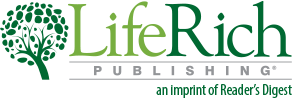Our Essential Selves
The truth of these assertions is easy to test. Imagine that you were born in a time and location where they did not have the Boy Scouts, or the Christian Church, or the Republican Party. Imagine you were born in a pre-industrial, pre-materialistic era without fancy homes, clothes and cars. Imagine for those of you who are married with children, that the next time you remained single and childless. Would you not have an essential self? Would there not be a fundamental core before any trimmings are added?
Question: Who is that person? Who is that naked integrity for whom others write the scripts for your life? Were we born to repeat the past and honor yesterday. Or were we born to create a better tomorrow? Are we too comfortable in our 5-star prisons of false assurances, metaphysical promises and pious hope? Are we addicted to hopium?
These questions are grist for our mill. Why do we not become what we are innately capable of becoming? Why do we not struggle to find and follow our true potential.
Each of us is born with a unique potential to be someone special. The great pursuit of life is to strive to discover that innate potential and grow into the fullness of that potential. It way be as straightforward as thinking about three personal questions. How do I want to be remembered? What is my relationship to others? How can I direct my behavior for the betterment of both?
Each of us was born into this world without money, And we will die and leave this world without money. As by Belgium relatives say, “The shirt they bury you in has no pockets.” It doesn’t seem quite fair, but I have never seen a hearse pulling a U-Haul-It trailer to the cemetery.
While we are here, we freely possess the most priceless of all gifts. And that is the gift of time. To earn a living, we enter into a modern-day Faustian contract: we trade a significant portion of our precious lives for money. In a sense, money is a surrogate for human life, since we exchange our irretrievable hours for it.
Maybe we should measure money in life-equivalent hours instead of dollars to remind ourselves how precious it really is. Ultimately, how we acquire and spend our money – our life equivalents – are reflections of how we value our lives. It pains me to think of all the frivolous things I have traded part of my life to buy.
From a spiritual perspective, money has little value.
All the money in the world cannot buy the inner qualities we admire in others and wish for ourselves: confidence, courage, compassion, kindness, and generosity. Indeed, the qualities we associate with character are more often gained under conditions of deprivation than affluence.
Neither can money buy the things we most need from others: love, respect, admiration, acceptance, friendship, trust or loyalty. In fact, the frivolous use of money often jeopardizes the attainment of the things we inwardly need.
Nor can money be used to compensate for psychological and spiritual needs. Looking for inner fulfillment from outer possessions is the Disease of Materialism. The things most worth having simply cannot be bought. All the material possessions in the world will not fill one small hollow in the human spirit. Only the true community can fill those hollows. And it does so freely for all who serve and stand in right relationship with it.
As unusual as it feels, all personal growth and spiritual transformation start with questioning the comfort zones of our inner self . It starts with questioning those things we are most sure about and exposing them to new possibilities. As Soren Kierkegaard wrote: “To be spiritual is to have knowledge of the facts of your life.” True religion is what is revealed to you about your life when you question it. Doubt keeps alive life’s rich possibilities and speaks of hope in every situation. Maybe, just maybe, to truly question is the answer.
Decoupling from a world of status and consumerism builds self-esteem and inner confidence. It makes you feel empowered. You feel that your own self-worth is not based on the whimsy of public opinion, parental scripts or current fads, but is grounded in your higher values. You sense yourself as one who has risen above short-term, emotional self-interest. And the rewards flow back as meaning in your life and the inner experience is joy. It is how to keep zest in life. It comes from letting go.
This is nothing new. It is the wisdom of the ages. Remember the paradox of Jesus: “You must give your life away to gain your life.” Or in the modern day words of Winston Churchill: “You make a living by what you get, but you make a life by what you give.” We just conveniently keep forgetting this.
I believe the essential self is the latent potential of finding what we have to give and to give it abundantly with love. From this comes meaning and happiness.




